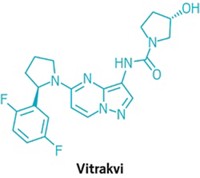Advertisement
Grab your lab coat. Let's get started
Welcome!
Welcome!
Create an account below to get 6 C&EN articles per month, receive newsletters and more - all free.
It seems this is your first time logging in online. Please enter the following information to continue.
As an ACS member you automatically get access to this site. All we need is few more details to create your reading experience.
Not you? Sign in with a different account.
Not you? Sign in with a different account.
ERROR 1
ERROR 1
ERROR 2
ERROR 2
ERROR 2
ERROR 2
ERROR 2
Password and Confirm password must match.
If you have an ACS member number, please enter it here so we can link this account to your membership. (optional)
ERROR 2
ACS values your privacy. By submitting your information, you are gaining access to C&EN and subscribing to our weekly newsletter. We use the information you provide to make your reading experience better, and we will never sell your data to third party members.
Mergers & Acquisitions
Gilead buys immuno-oncology-focused Forty Seven
The $4.9 billion deal adds a mid-stage cancer drug to the big biotech’s pipeline
by Lisa M. Jarvis
March 4, 2020
| A version of this story appeared in
Volume 98, Issue 9
To bolster its oncology portfolio, Gilead Sciences will pay roughly $4.9 billion to acquire Forty Seven, a Menlo Park, California–based biotech firm developing cancer immunotherapies.
It’s the first major acquisition for Daniel O’Day, who became Gilead’s CEO in March 2019 with a mandate to bolster the firm’s pipeline. Gilead enjoyed several years of robust growth thanks to its HIV and hepatitis C drug portfolios, but sales flattened as those drugs matured and, in some cases, lost patent protection.
Investors have been pressuring Gilead to find deals that could revitalize sales. A few months after taking the helm, O’Day unveiled a nearly $5 billion investment in the Belgian biotech firm Galapagos. That 10-year pact gave Gilead access to filgotinib, a rheumatoid arthritis medicine being considered for US approval.
Forty Seven adds a magrolimab, an antibody that blocks CD47, a protein used by cancer cells to send a “don’t eat me” signal to immune cells. Magrolimab is currently in Phase II clinical studies to treat two kinds of blood cancer.
That molecule, and others that are earlier in the pipeline, puts Forty Seven at “the sweet spot of our strategy,” O’Day told investors after the deal was announced. He said future business developments, whether partnerships or small- to medium-sized acquisitions, will be focused on areas where Gilead has in-house knowledge—specifically, virology and immunooncology—and on molecules that are already in the clinic.
However, investors see the price tag as high—rumors of the deal put the cost at closer to $3 billion—and worry about O’Day’s strategy. “Gilead needs to be doing deals of this size or larger to move the needle on their outlook,” whereas the company is signaling that future transactions could be smaller, SVB Leerink stock analyst Geoffrey Porges told clients.





Join the conversation
Contact the reporter
Submit a Letter to the Editor for publication
Engage with us on Twitter